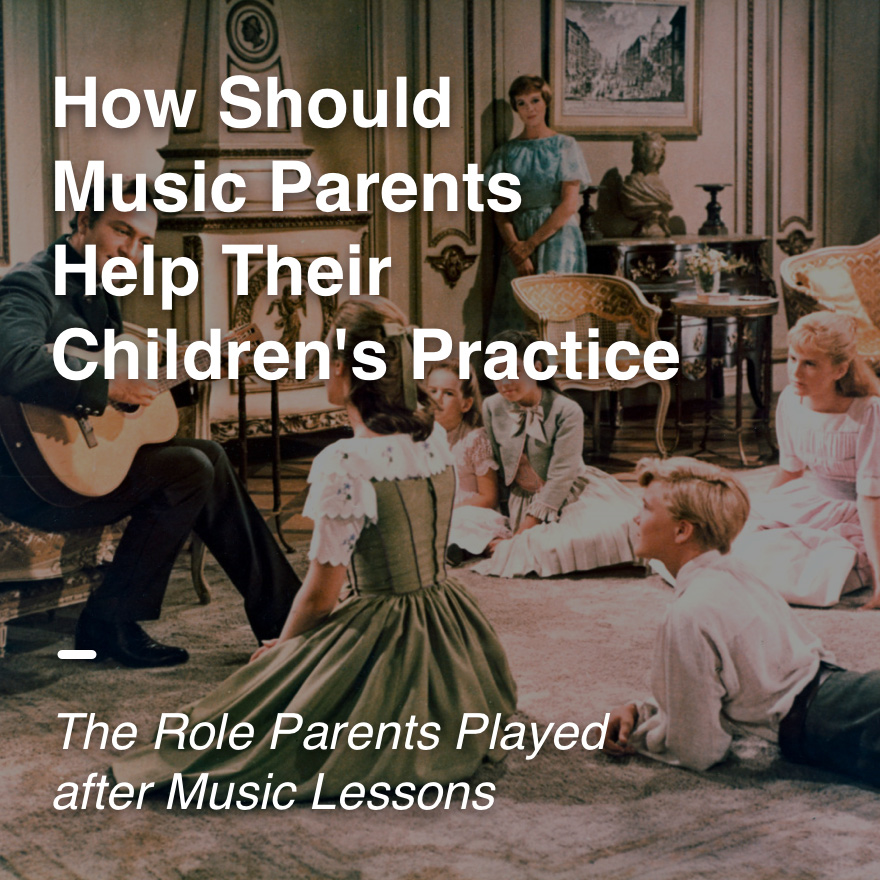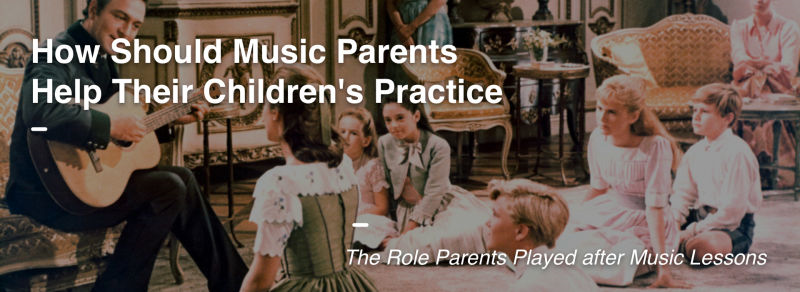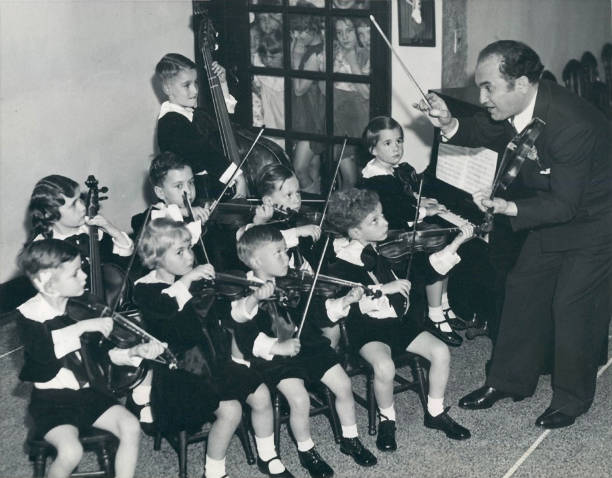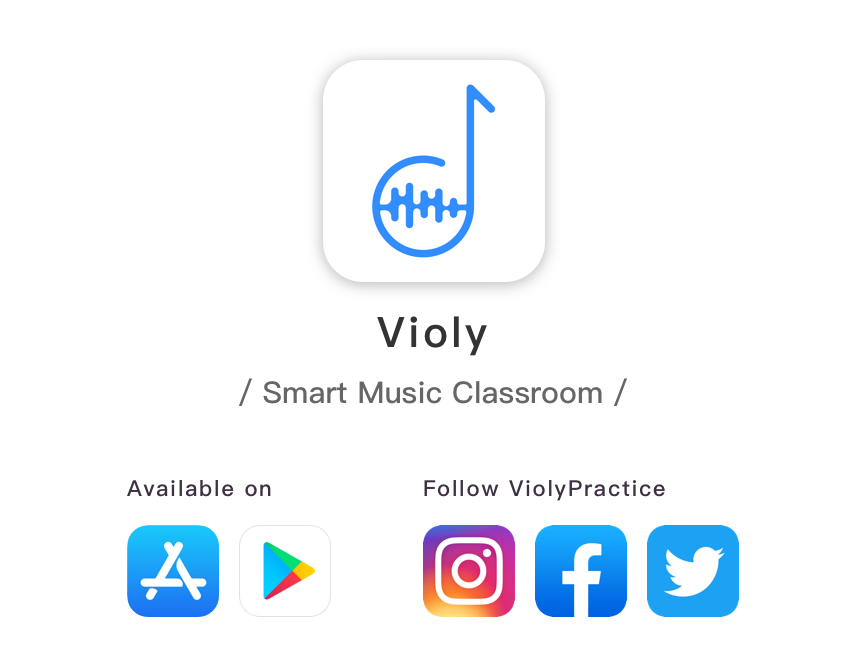The Role Parents Played after Music Lessons
Music instrument performing can be complex since it requires complicated and asymmetrical motions of both hands, which need good muscle coordination to complete. To grasp all these motions, music instrument learners are supposed to practice for a lot of times in a long term.
For young music learners, they may need more supervision in daily practice. When they are taking music lessons, teachers can play the role of supervisors. But when lessons end, teachers are not likely to follow up students’ practice 24/7. Therefore, parents are ideal ones to take up the baton and help their children’s practice after music lessons.

So what should parents do to be helpful after music instrument lessons?
First of all, music parents need to keep in mind that their company is aimed at helping children improve practicing efficiency and enjoy the process, rather than watching whether their children have practiced.
Treat Practicing after Music Lessons Like Relaxation
There are academic classes for children, there should be after-school activities as well. Taking various classes, such as Math, PE, Science, etc, is the daily routine. Then after school, they are likely to be faced with piles of endless homework.
With so many different subjects, it is no wonder that setting a time slot to practice music instrument can seem like a burden to a kid. Therefore, music parents need to help their children see playing music in a different light.
Rather than treating practicing like any other subject, parents need to create a distinction so that children see violin practice as relaxation. The best way to shift children’s mindset is to let them play music which they are actually interested in.
Let Children Play Music They Like
While there are always certain signature songs and classics for violin, or for piano, or for any music instrument, children may lose interest if he or she does not like the music/music instrument they are playing. Parents can try to work with their children’s teacher to make sure that their children have the chance to learn and play some music they truly enjoy.
According to the Academy of Music and Dance, “As children get to be around 10 years old, sometimes younger, they start to develop preferences for musical style, which is largely influenced by internet, radio, TV, and whatever they are most exposed to at home. They will also typically gravitate to whatever their friends are listening to.”
Parents can use this as a motivational strategy and allow their children to play at least one song they like as part of their weekly routine. Classic repertories are also essential, but performing other songs the children enjoy can work as an impetus for daily practicing.

Make Music Practice after Lessons Fun
This should come as no surprise. No one wants to practice when it is boring. Incorporate fun games, activities, and challenges can make young music instrument learners look forward to practicing.
In fact, very few children are self-motivated in their daily practice. Most need incentives and reminders to keep them focused and moving forward. Parents may also communicate with the music teachers and develop some creative ways making practice more fun.
Form A Practice Schedule and Create Challenges
To form a schedule or a to-do list can help people avoid procrastination in some way. Parents may let their children determine the practice schedule. In this way, children are more likely to stick to it.
Children hear parents tell them what to do all the time. To catch their attention, letting them plan their own practice schedule can be effective. Besides, it really improves their strategic thinking in a long term.
Basically, parents can get their children to determine when to practice, what to practice, and how long to practice. After the decision is made, parents can help children research and figure out how often a good musician practices. The children then can set a schedule based on the reality that one must practice more to become excellent. Not only will this allow children to feel a sense of control, it will also help them learn the value of practice.
Besides, parents can help children set specific goals and challenges. This will help them progress faster because they will work on accomplishing specific tasks or mastering particular skills. Don’t just ask kids to ‘practice’. Instead, parents may give them bite-sized and clear challenges to complete. For example, set a goal like working out a fingering for measures 24–35, or gradually speeding up section B to 85 bpm.

Be Children’s Cheerleader and Celebrate All Accomplishments They Made under the Music Teachers’ Guidance
Parents should let children know that they always had their parents as the biggest fans, especially when they may feel frustrated or discouraged.
Parents are supposed to listen to their children at home as often as possible and make encouraging remarks about children’s progress. Also, parents should make sure to ask their young learners how the music lessons went. Once parents take a genuine interest in their children’s musical journey, the young musicians will be excited to play.
Moreover, parents need to celebrate their children’s little victories along the way of violin learning. Learning to play the violin is a long journey full of peaks, valleys, and plateaus. Celebrating the little victories will help children keep a positive attitude when they are struggling or having difficulty tackling a new concept or song.
While verbal praise and giving some rewards are important, parents may also find another way to celebrate achievements. Keeping a journal of children’s accomplishments can be a good way. When parents put it in writing, they are less likely to forget.
Plan Performances for Children
When it comes to music instrument learning, we all know that it is important to keep the little performers engaged and excited about their music education. Giving them the chance to perform consistently throughout the year can definitely hit the mark. Consistent performances continue to motivate children. Scheduled performances on campus, instrument performing competitions and other occasions all work well.
By planning performances for children and encouraging them to be on stage, parents can help children increase excitement and confidence. Besides, it may make children themselves recognize that more practice means avoiding embarrassment at a recital.

Help Children Engage with Music and Understand the Gift of Music
Children are more likely to practice music if they feel connected to the process. Parents need to help their young learners develop an interest and curiosity for music. Once children find themselves are engaged with music, they are more likely to be willing to practice.
Besides, parents should be engaged with music themselves. They can create a musical atmosphere at home by showing interest to music, for example, listening to music and sing together. In this way, children may naturally want to imitate their parents, so it is a big motivation for children to practice.
What’s more, parents should take efforts to confirm children that playing the music instrument is an opportunity that is not necessarily available to everyone. They need to teach children to appreciate music and what music can offer and help them discover that music can enhance their life. To make children understand the gift of music, parents can take them to concerts or shows, play music at home, and help them discover what they like. This can also help children understand why practicing after music lessons is important.
Different parents may have various ways to help their children’s daily practice. All the ways are aimed at providing children with effective practice and also a chance to make achievements. The whole process requires all parents’ participation and efforts.
Have a HAPPY practice!!
More Violy Music Articles:
Teaching Violin Students to Read Key Signatures
A Comparison of Movable Do & Fixed Do
How to Choose Right Violin Strings
Things You Must Know About Violin Bowing
Acoustic Violin VS Electric Violin
#ViolyPractice makes Perfect!!
Follow us on: Violy.app
